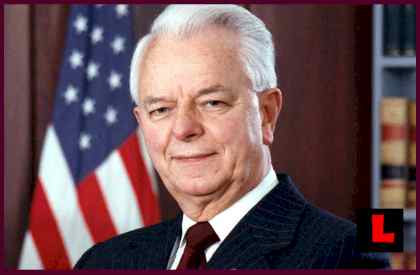
Rest in peace, Senator Robert Byrd.
Here’s perhaps the best summation of what Senator Robert Byrd meant to the U.S. Senate:
But most importantly, observing Byrd on the Senate floor was like stepping through a time portal. Byrd’s presentations were from another era, back before television cameras and before politics was distilled to 140 characters on Twitter. Byrd gave speeches. Robust speeches. And you imagined how the Senate used to function in the 19th century when a speech was the only means senators had to communicate with their constituents or persuade their fellow members.
Byrd’s time machine revealed how the Senate used to operate. And no other senators commanded attention quite like that.
But Byrd’s speeches weren’t the only thing that transfixed you when he took the floor. When it came to parliamentary jockeying, few could out-maneuver Byrd.


While I can respect his many years as a statesman of the Senate, I’m sure you haven’t forgotten his membership in the KKK, his voting against the Civil Rights Act of 1964, the 1965 voting rights bill, and the king of pork barrel spending. He repeatedly used the n-word on talk shows even into the 2000s without having to resign from office, a luxury that could only be afforded to a Democrat politican.